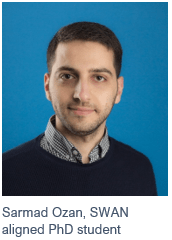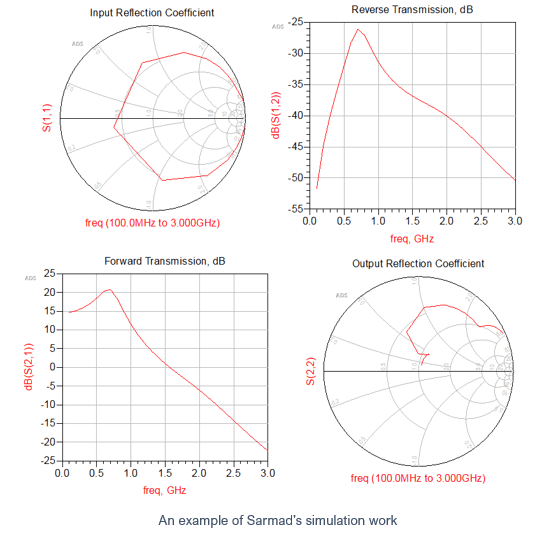Celebrating the first full year of the SWAN Prosperity Partnership, this spotlight blog series takes a deeper dive into the recent work of our Post-Doctoral Researchers, our aligned PhD students, and research team members from across the Partnership.
 In the latest blog in this series, we asked Sarmad Ozan, an EPSRC Centre for Doctoral Training in Communications PhD student aligned with SWAN, a few questions about his work on High Dynamic Range Low Noise Amplifiers (LNAs) and how this work is contributing to the development of more secure and agile RF technologies.
In the latest blog in this series, we asked Sarmad Ozan, an EPSRC Centre for Doctoral Training in Communications PhD student aligned with SWAN, a few questions about his work on High Dynamic Range Low Noise Amplifiers (LNAs) and how this work is contributing to the development of more secure and agile RF technologies.
What is the key focus of your PhD and how does this relate to SWAN?
Design and implementation of secure and agile RF technologies for the receiver side of a transceiver. This research would be integrated with the contributions from other SWAN RF activities thus yielding a more robust and agile transceiver for future secure wireless applications.
Can you give us a brief overview of the work you have been doing recently?
I am working on implementing different candidate architectures for High Dynamic Range Low Noise Amplifiers (LNAs) to improve their 3rd order intercept operating point, thus improving linearity and enhancing strong signal handling capabilities. This work can be extended to investigating system level design of the full receiver chain to further improve operational capabilities in congressed electromagnetic spectrum.
What will be the key outputs of this particular piece of work?
A receiver that is able to detect and demodulate a weak wanted signal in the presence of high adjacent channel signals. These could be both intentional jamming waveforms, or just an aspect of operational deployment.
What are the next steps for this section of your research?
To implement prototypes so far analysed through simulation, where I have been using such tools to improve linearity as well as maintaining a low noise figure and LNA gain.
Can you tell us about any recent publications in the world of communications systems and networks research that have interested you?
Tunable Frequency-Division Duplex RF Front End Using Electrical Balance and Active Cancellation by Leo Laughlin
Linearization Techniques for CMOS Low Noise Amplifiers: A Tutorial by Heng Zhang
Is there anything else you would like to tell us?
I would like to thank EPSRC for funding the PhD project. Also, working with the SWAN team is giving me a lot of experience in diverse topics in the field. SWAN project is a promising project to build secure and agile networks.
SWAN Prosperity Partnership
Interested in reading more about SWAN and our programme of research? Take a look at our website for more information or sign up to our newsletter for regular updates on SWAN activities and opportunities to get involved.
